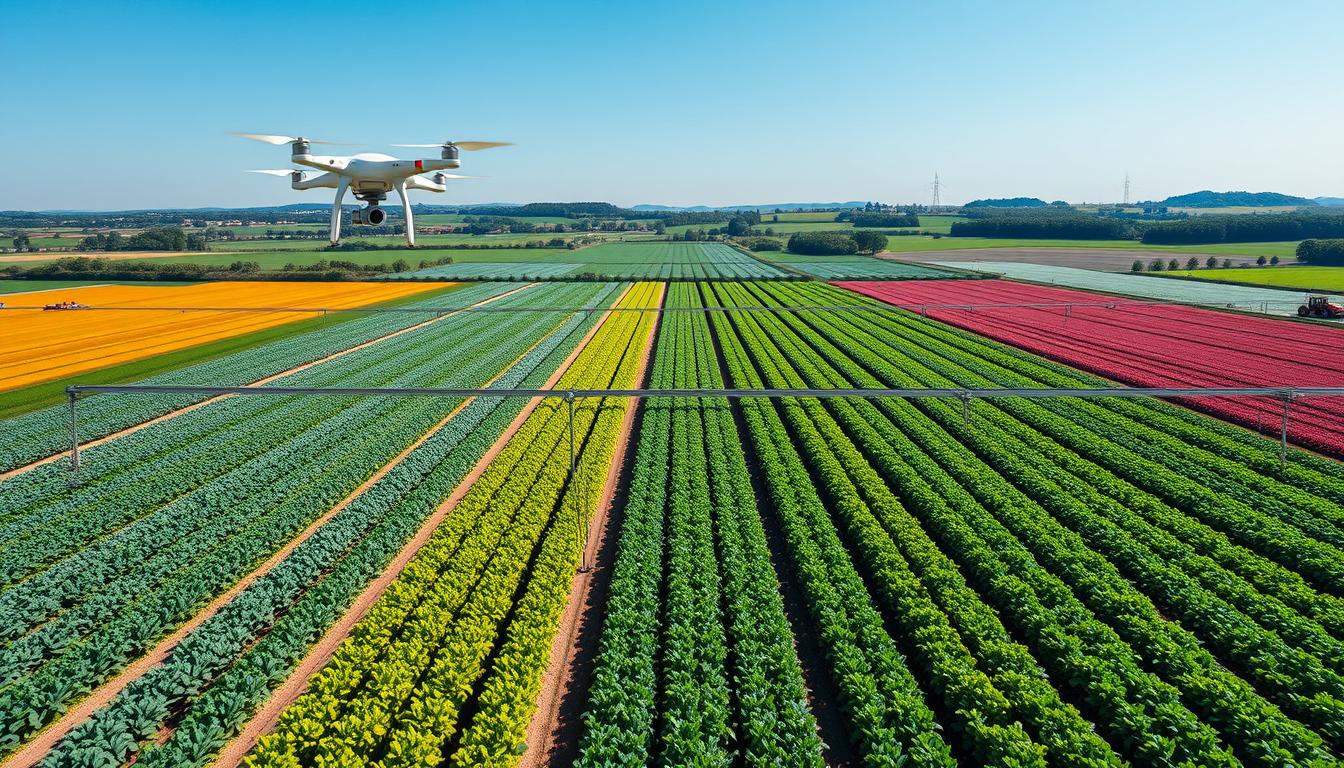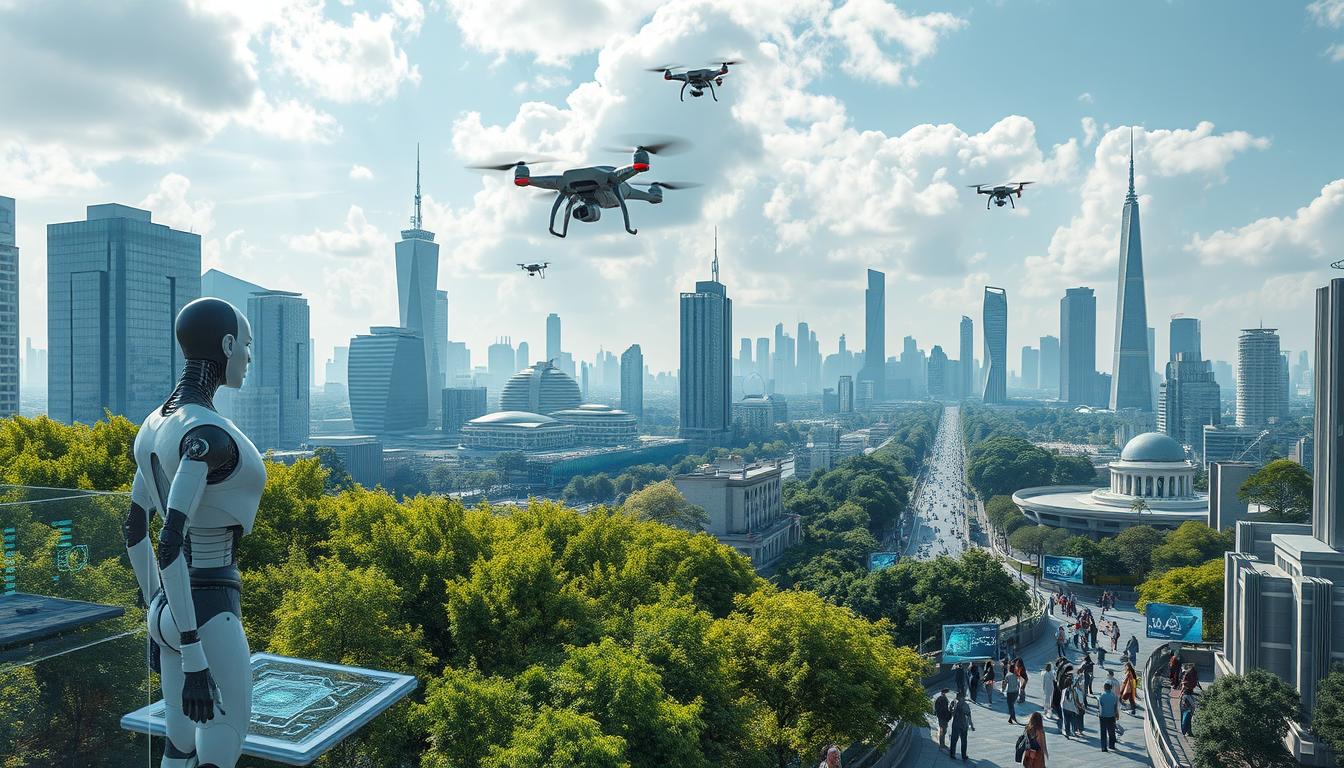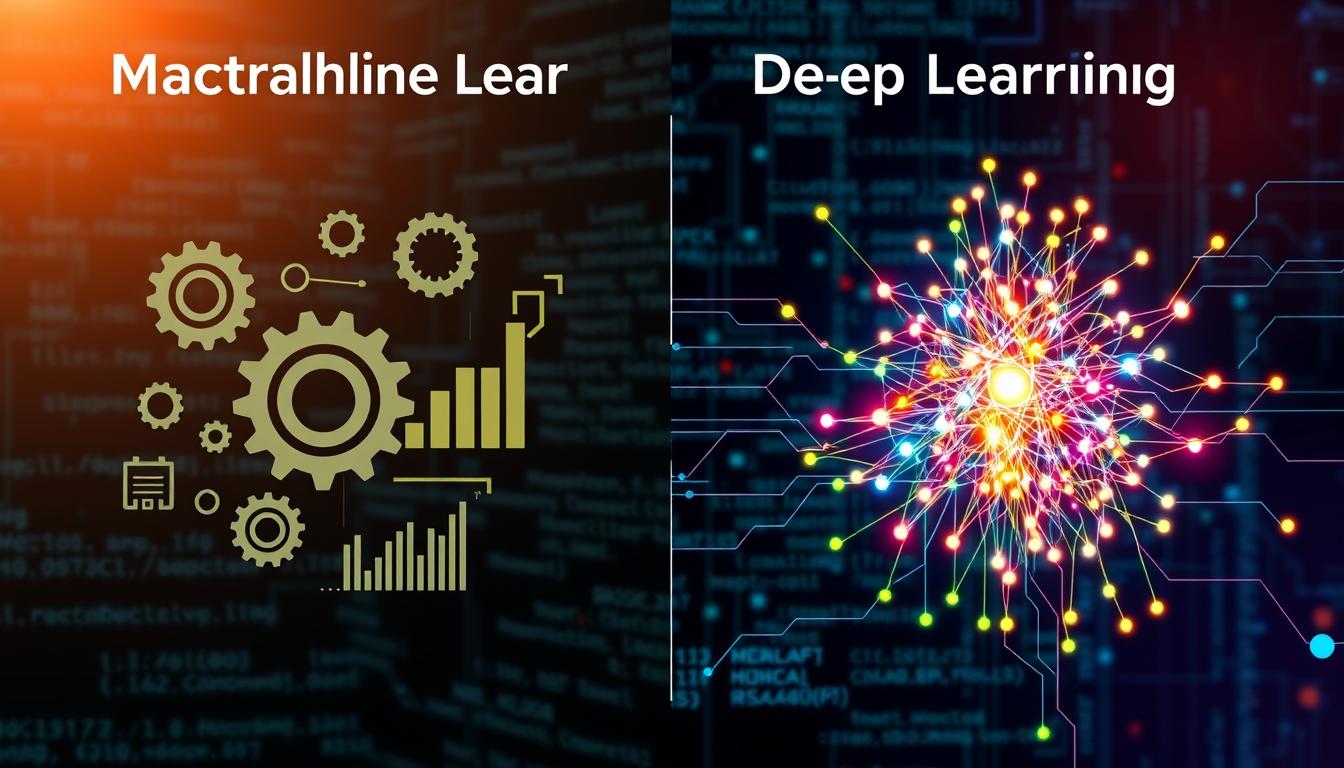Artificial intelligence (AI) is changing India's farming world. It brings new ways to farm more precisely and produce food sustainably. This article looks at how AI is making a big difference, helping farmers use resources better, grow more crops, and keep food supplies safe for the future.
AI is changing farming in big ways. It helps farmers watch over their soil and crops better. It also helps predict how much they will grow. This way, farmers in India can make smarter choices, handle changes in the weather, and farm more efficiently and sustainably.
AI is also changing how we handle water, crops, and animals. It helps farmers use water wisely, find and stop pests and diseases, and keep an eye on their animals' health. This approach not only makes farming more productive but also helps the environment.
As the world deals with food security and climate change, AI in farming in India is very promising. It uses data and smart systems to make farming more efficient, resilient, and sustainable. This means a better future for farmers and those who eat their food.
Introduction to AI in Agriculture
AI (Artificial Intelligence) has changed farming, making it more precise and efficient. It uses data and automation to improve farming methods. This change helps farmers grow more food with less waste and better use of resources.
AI brings many benefits to farming, like predicting crop yields and spotting pests early. It helps farmers make better choices and manage their farms smarter. This introduction looks at how AI is changing farming and making it more advanced.
The world needs more food as the population grows. AI in farming is a key solution, making farming more efficient and reducing waste. It helps monitor soil, crops, and livestock, leading to a greener and more data-driven farming future.
The Role of AI in Precision Farming
The agricultural industry is moving forward with new technology. Artificial intelligence (AI) is playing a big role in precision farming. AI sensors and computer vision are changing how farmers check their soil and crops. This leads to better farming practices that increase yields and productivity.
Soil and Crop Monitoring
AI helps farmers understand their soil and crops better. It looks at soil samples and environmental data. This way, it finds out if the soil lacks nutrients or has too much water.
AI also checks on crops. It spots problems like pests or diseases early. This helps farmers take action to protect their crops.
Predictive Analytics for Yield Optimization
AI uses predictive analytics to help farmers get better yields. It looks at past data, weather, and other factors. This helps farmers plan better and use resources wisely.
AI-Powered Irrigation and Water Management
In agriculture, using water wisely is key. Luckily, AI is changing how we manage water. AI systems use data and predictions to save water and keep farming sustainable.
AI makes irrigation precise. It lets farmers control water based on soil, weather, and crop needs. This saves water, cuts down on waste, and boosts crops, helping the planet.
AI also helps manage water better. It uses smart algorithms to forecast water, spot problems, and suggest smart water use. This helps farmers make better choices and protect their water for the future.
AI in irrigation is a big step towards a greener future in farming. It helps farmers save water, grow more food, and care for the environment.
AI in Agriculture: Precision Farming and Food Production
AI is changing agriculture in big ways. It's not just about better crops and using resources wisely. AI is also improving food processing, quality control, and supply chains.
AI is making supply chains better. It looks at lots of data to find patterns and predict needs. This helps manage logistics and inventory better, cutting down on waste and ensuring quality food gets to people.
AI is also key in keeping food quality high. It uses computer vision and deep learning to check food for defects. This makes food more consistent and safer, reducing the chance of foodborne illnesses.
As the world's population grows, so does the need for food. AI in agriculture helps farmers and food makers work more efficiently. It's all about better farming, supply chains, and food quality. AI is set to be a big part of the future of food.
AI-Driven Pest and Disease Management
In sustainable agriculture, AI is changing how farmers fight pests and diseases. It uses advanced monitoring and predictive models. This lets growers manage pests and diseases with great accuracy.
Early Detection and Prevention
AI systems with sensors and computer vision can spot pests and diseases early. This means farmers can act fast to stop problems. It helps prevent big damage to crops and keeps plants healthy.
AI and data help farmers protect their crops better. This means they use fewer harmful pesticides. It's good for the environment and keeps food safe and healthy for us.
AI for Livestock Monitoring and Management
AI is changing how we manage livestock, not just crops. It helps track animal health, productivity, and resource use. This makes animal care more efficient and sustainable.
Animal health monitoring is a big area where AI helps. It uses sensors and cameras to watch how animals behave and feel. This lets farmers catch health problems early, keeping animals healthier.
AI also looks at lots of data to find ways to improve productivity. It predicts things like how much animals will eat and grow. This helps farmers make better choices, leading to more food and money.
AI is also key in resource management. It helps decide how to use things like water, food, and vet care. This cuts down on waste and makes sure animals get what they need. It's good for the planet and makes farms more profitable.
AI is making a big difference in how we care for animals. It helps keep them healthy, boosts productivity, and manages resources better. AI is changing animal care for the better, leading to a more sustainable future.
Sustainability and Environmental Impact
The agricultural industry faces big environmental challenges. AI-driven precision farming is a key solution. It helps farmers use resources better, cut down waste, and lessen environmental harm. This leads to a greener future in farming.
Reducing Waste and Maximizing Resources
AI in farming lets farmers watch soil health, crop conditions, and manage water and fertilizers better. This makes farming more efficient. It saves resources like water and soil nutrients, vital for growing food.
AI also finds and fixes problems in the farming supply chain. This reduces food waste and makes sure resources are used well. AI's role in farming is huge for the environment. It helps make farming more eco-friendly and resource-smart.
AI and Smart Farming Technologies
Artificial intelligence (AI) is changing farming with new smart technologies. Farmers use AI to make their work more efficient and precise. Tools like autonomous tractors and drones are making farming more advanced.
Autonomous Tractors and Drones
Autonomous tractors with AI help farmers work smarter. These tractors can do tasks like plowing and seeding on their own. This saves time and effort.
AI drones are also helping farmers. They map fields and monitor crops. This lets farmers make better decisions and react fast to changes.
AI and smart farming together improve productivity and sustainability. Farmers use data to manage resources better. This helps the environment too.
The future of farming looks bright with these technologies. AI and smart farming tools are making farming more efficient and sustainable. This is a big step towards a better future for all.
Challenges and Limitations of AI in Agriculture
Artificial intelligence (AI) has huge potential in farming, but it faces big challenges. Getting good data is a major problem. In many places, collecting and managing data is still basic. This makes it hard to use AI well.
Another big issue is getting farmers to use new tech. Small farmers might not have the money or know-how. They also worry about the tech's reliability. It's important to make AI farming tools more accessible.
There are also ethical concerns with AI in farming. We need to make sure it's used right and fairly. We must protect people's data and think about jobs. Everyone involved needs to work on making AI farming safe and fair.
Despite these problems, farmers are looking into AI. As AI gets better and data gets easier to find, more farmers will use it. But, we must tackle these challenges to make sure AI farming is good for everyone.
The Future of AI in Farming and Food Production
The agricultural industry is changing fast, and AI is playing a big role. New trends and innovations in AI farming and food production are making farming more sustainable and efficient. This is shaping a better future for agriculture.
Precision Farming and Smart Agriculture
AI will make precision farming and smart agriculture even better. New AI sensors, data analytics, and systems will help farmers make smarter choices. This will lead to better crop yields, use of resources, and less harm to the environment.
Technological Innovations
AI-based technologies like self-driving tractors, drones, and robots will become common in farming. These tools will change how we do manual tasks, boost productivity, and make farming more efficient.
Predictive Analytics and Yield Optimization
AI predictive analytics will be key in forecasting crop yields and environmental conditions. This data will help farmers make better decisions, leading to more food and less waste.
As AI in agriculture grows, we'll see more precision farming, smart agriculture, and new technologies. These changes will make farming more sustainable and efficient. They will help ensure we have enough food for future generations.
Conclusion
AI has changed farming in India, making it more efficient and sustainable. It helps farmers use resources better, grow more crops, and protect the environment. This is a big step towards a better food system.
AI is getting better, and farming's future looks bright. It will help solve big problems like food security and protecting the environment. AI is making farming smarter, from growing crops to fighting pests and diseases.
AI will keep improving farming in India. It will lead to better farming and food production. This will make farming more productive and protect the environment. India will become more prosperous and have enough food for everyone.
FAQ
What are the key benefits of using AI in agriculture?
AI in agriculture brings many advantages. It helps with precision farming, better crop monitoring, and predicting yields. It also improves irrigation, controls pests and diseases, and manages livestock better. These tools increase productivity, use resources wisely, and make food production more reliable.
How does AI-powered precision farming work?
Precision farming uses AI to analyze soil, crop health, and predict yields. It uses sensors, computer vision, and analytics for real-time data. This helps farmers make better decisions, use resources well, and farm more efficiently.
Can AI help with irrigation and water management in agriculture?
Yes, AI can make irrigation and water management more efficient. It uses algorithms to optimize water use, detect leaks, and apply water precisely. This reduces waste and conserves water, a valuable resource.
How does AI contribute to pest and disease management in agriculture?
AI helps manage pests and diseases by monitoring and predicting outbreaks. It uses computer vision and machine learning to spot issues early. This allows farmers to act quickly, protecting crops and reducing pesticide use.
What role does AI play in livestock management and animal husbandry?
AI changes livestock management by tracking animal health and optimizing resources. It uses data to improve animal care, increase productivity, and make farming more efficient and sustainable.
What are the challenges and limitations of implementing AI in agriculture?
AI in agriculture faces challenges like data quality and technological adoption. There are also ethical concerns and the risk of replacing traditional farming. Overcoming these hurdles is key to AI's successful use in farming.
What are the emerging trends and innovations in AI-powered farming and food production?
The future of AI in farming looks bright. Trends include autonomous tractors, drones, and advanced robotics. These innovations will enhance precision, resource use, and sustainability, making farming more efficient and resilient.




